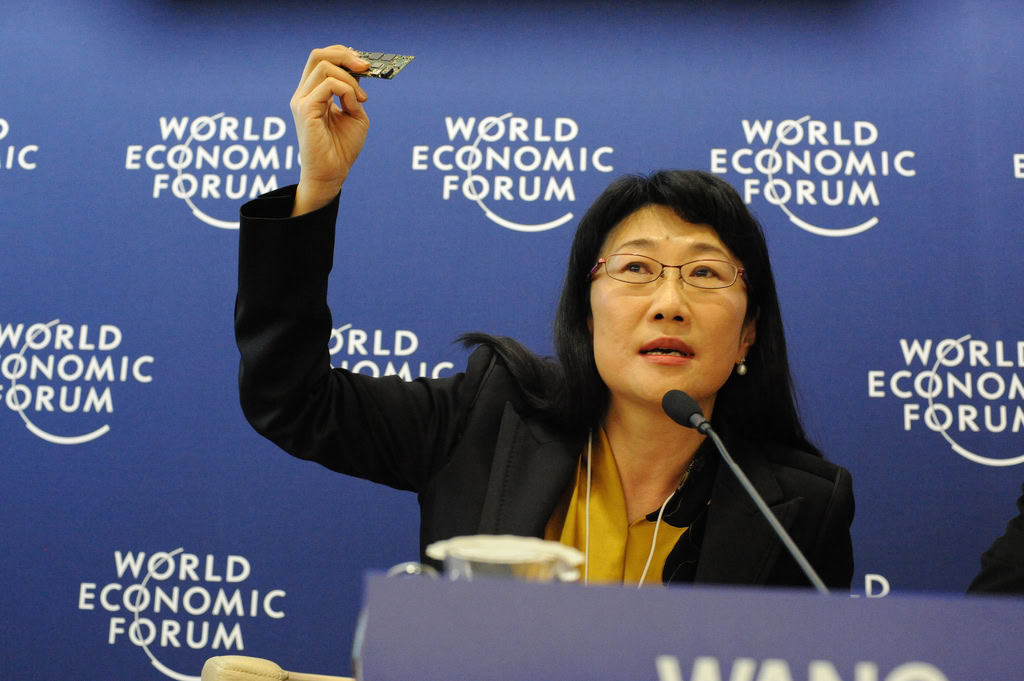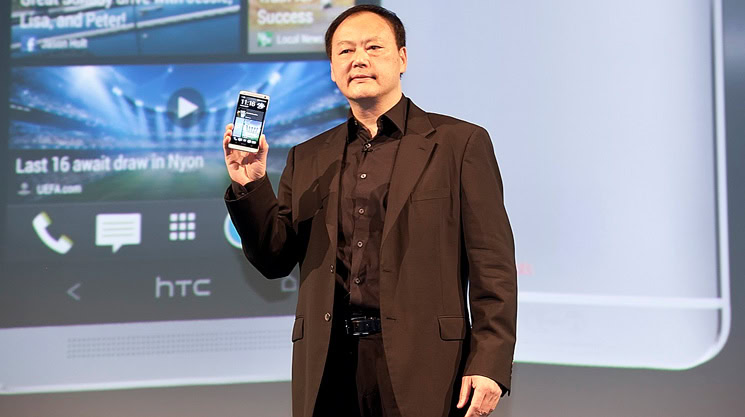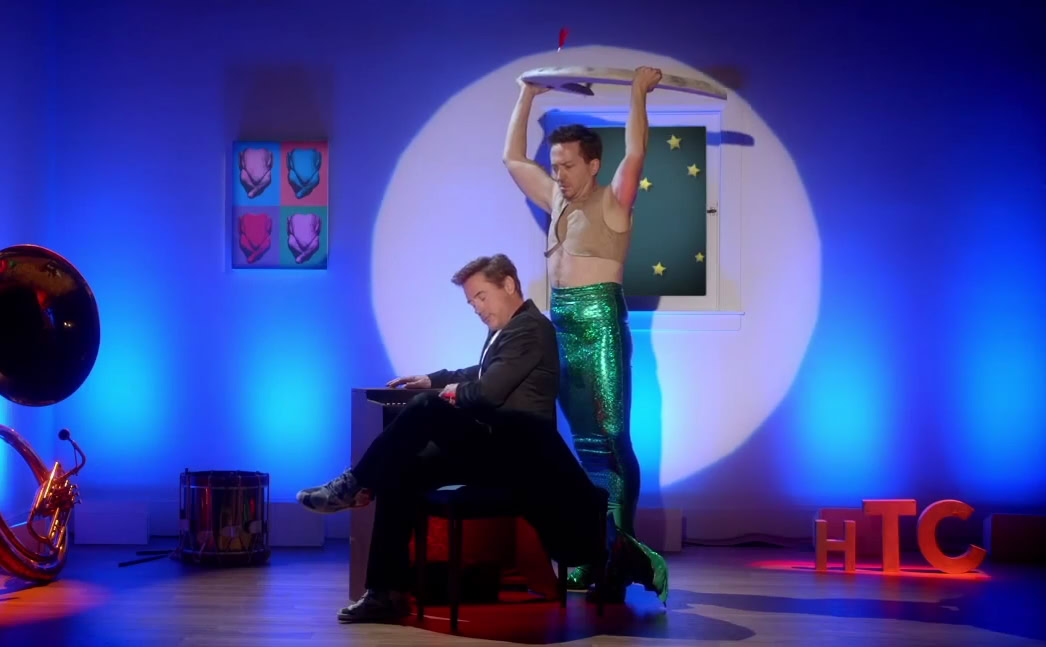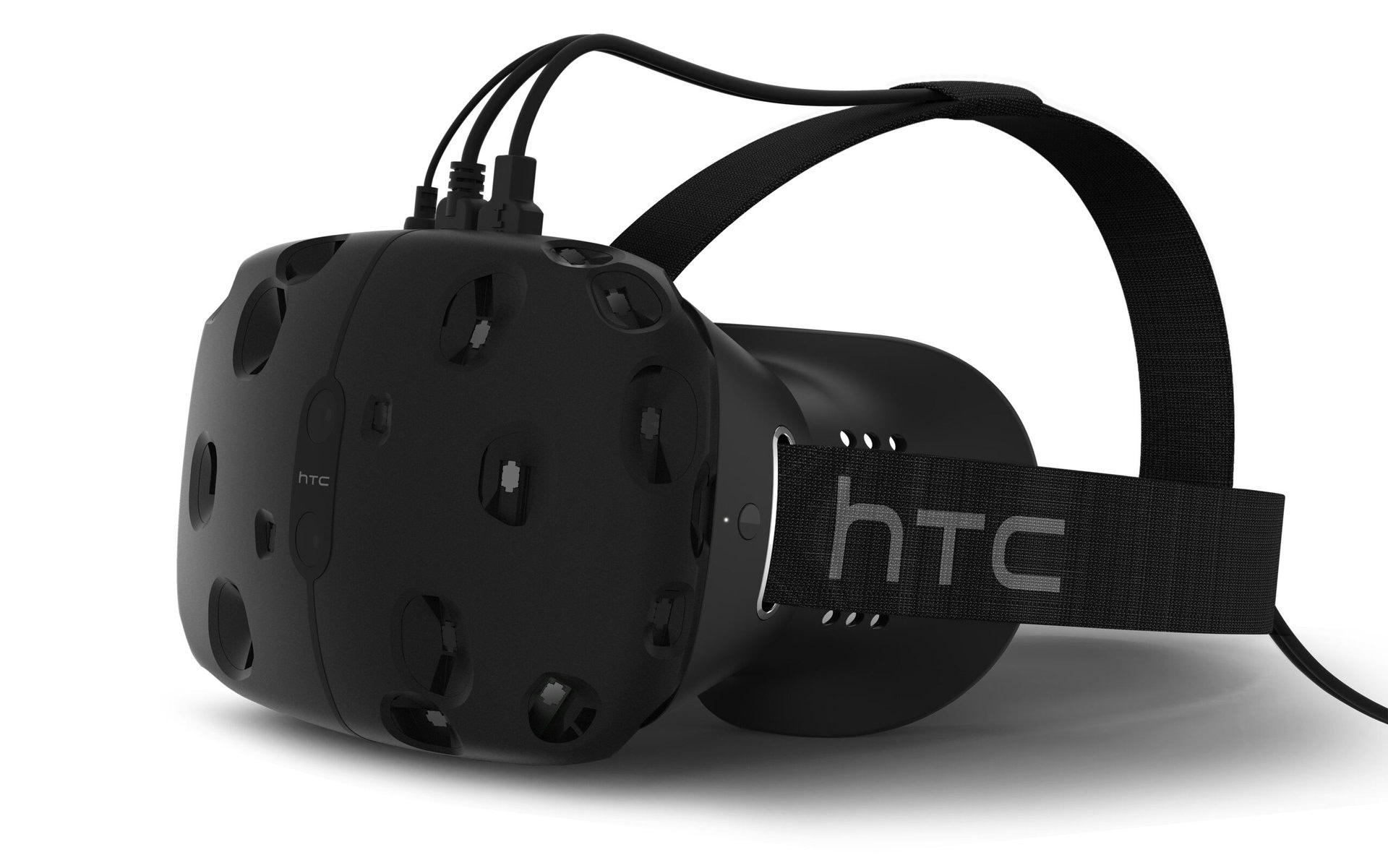Affiliate links on Android Authority may earn us a commission. Learn more.
Where will Cher Wang take HTCnext?
Published onMarch 24, 2015

“We pioneered the smartphone industry; now we are applying that thinking to realize the potential of a new generation of connected products and services.”
So said HTCco-founder and Chairwoman, Cher Wang, in the press release that accompanied her announcement as CEO. Does that mean HTCis admitting defeat in the smartphone market? Only time will tell, but it does at least signal a pragmatic acknowledgment that the company will never regain its 2011 high if it stays on its current path.
HTC claimed 10.7% of the worldwide smartphone market in Q2, 2011, and was the market leader in the US in Q3, 2011 ahead of Apple and Samsung. That worldwide market share has dropped below 2% now. The company posted an annual loss in 2013 and, despite a return to narrow profitability in the last three quarters of 2014, sales are stagnant.
External pressures are crushing HTC

Peter Chou has been at the helm of HTCsince 2005, but he’s a product guy. The company’s problems have never really been about the quality of the products, though there have been some disastrous attempts to hit the mid-range (remember the Rhyme?). There was definitely some disappointment at the third generation HTCOne, because the M9 is yet more evolution in an industry that wants revolution, but that’s not the reason HTCis struggling.
The smartphone market is saturated. The race to the bottom as the average selling price of Android phones plummets, is being won by newcomers like Xiaomi. HTCis peculiarly badly placed to deal with this trend. Its reputation is built on quality hardware, it doesn’t own its supply chain, and it lacks the clout to deny carriers the influence they want.
No idea how to sell its product
That lack of influence with carriers feeds into HTC’s biggest weakness over the last few years — marketing. Being forced into exclusives with carriers has hobbled HTCin the US with a fragmented brand, and saddled its devices with bloatware. It has slowed the Android update process, eroding HTC’s reputation as the leading Android brand.
On top of that HTC’s advertising campaigns have been awful.
HTC climbed to its peak when it let the product do the talking. The “quietly brilliant” slogan was inspired. People recommended HTC phones and sought them out because they were really good, and there were few comparable competitors at the time. Hiring Robert Downey Jr as your brand ambassador and making corny, wacky ads that don’t even mention the product is the polar opposite of the original approach, and it’s no surprise that it’s not working.

There’s absolutely no way HTCcan realistically compete with giants like Samsung and Apple on the advertising front, but maybe Wang recognizes that.
The “new” strategy is already underway
HTC is presenting the change of leadership as a possible change of direction, but it’s not a disruptive coup. There’s every indication that Chou is stepping aside willingly to head the Future Development Lab, which plays to his strengths in product design.
Wang has been gradually taking over operational duties for a couple of years now. Internally it may feel like continuity. Externally there was a slight bump in trading off the back of the announcement and it’s possible this change will renew confidence in HTCand buy time for another roll of the dice.
So what is the new strategy?
“The overwhelming response that our virtual reality product, HTC Vive, received earlier this month underlines the importance of these new connected technologies for our future,” says Cher Wang.
If you haven’t seen anything about it yet then it’s time to look up HTC’s virtual reality collaboration with gaming giant Valve. The Vive has the potential to be the VR product of the next few years and if VR really takes off this time that could send HTCsoaring to new heights.

There are also signs that HTCis starting to nail the mid-range. The Desire 816 is a great example of how to take some of your high-end features and present them in a cheaper package and it’s deservedly selling well. The Desire Eye has garnered favorable reviews, and it differentiates itself with dual 13MP cameras to claim the ultimate selfie smartphone title.
HTC has also been developing more innovative camera software and then there’s the 16MP wide-angle, oddity, the HTC Re. It’s definitely kind of expensive, but it’s also quirky, interesting, and different.
The new products just keep on coming because MWC also saw the unveiling of the HTCGrip, a fitness wearable that came out of a partnership with athletic clothing and equipment brand, Under Armour.

The diversification won’t end there because HTC’s executive director of global marketing, Jeff Gattis recently told International Business Times that the company’s Connected Products Business Unit, created last summer, will also be tackling the home automation market.
Is this the right move?
There’s little doubt that HTCis over-reliant on the smartphone category compared to its biggest competitors and it has never really made significant inroads to the tablet market, which is showing signs of decline anyway. By branching out into other product categories it can build a bigger brand. If any one of these offshoots succeeds then HTC’s core business as a smartphone seller is likely to benefit as a by-product.
It’s hard to think of a better strategy right now. HTCis not well-placed to try and create a content eco-system as so many others are trying to do. Casting the net wide and playing to its hardware and innovation strengths seems like the right gamble, but it will only be proved so if one of them is a hit.
It’s definitely a better approach than pouring limited funds into advertising, which has never paid off for HTCin the past, and it could end up having a bigger impact on smartphone sales as it spreads the company name and creates new fans of the brand.
Is Cher Wang the right person to do it?
There are those who attribute Wang’s success to her father’s incredible wealth, built on a conglomerate, Formosa Plastics Group, and her close ties to the Ma government in Taiwan, but she has an impressive track record and obvious vision. She founded motherboard and semiconductor companies before starting HTCand she has investments and links to many industries.
One thing she’s clearly very good at is building partnerships and seeing the value or potential in new technology. That talent is going to be a major asset as HTCtries to diversify.